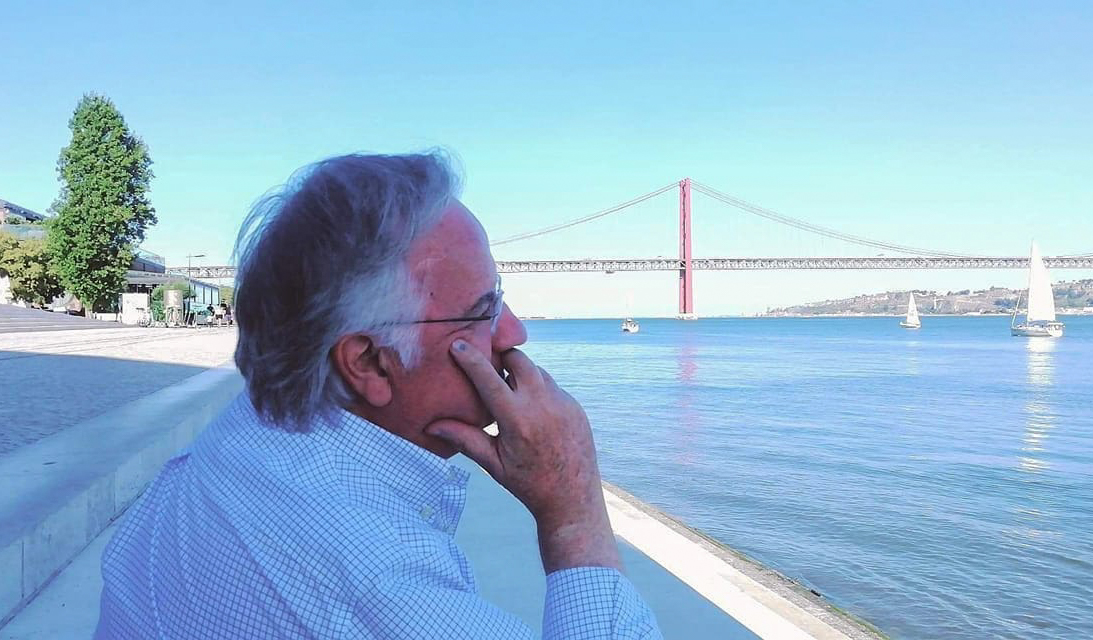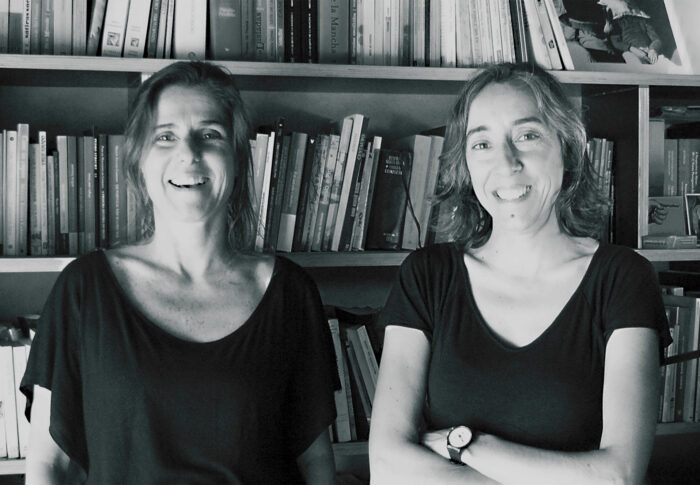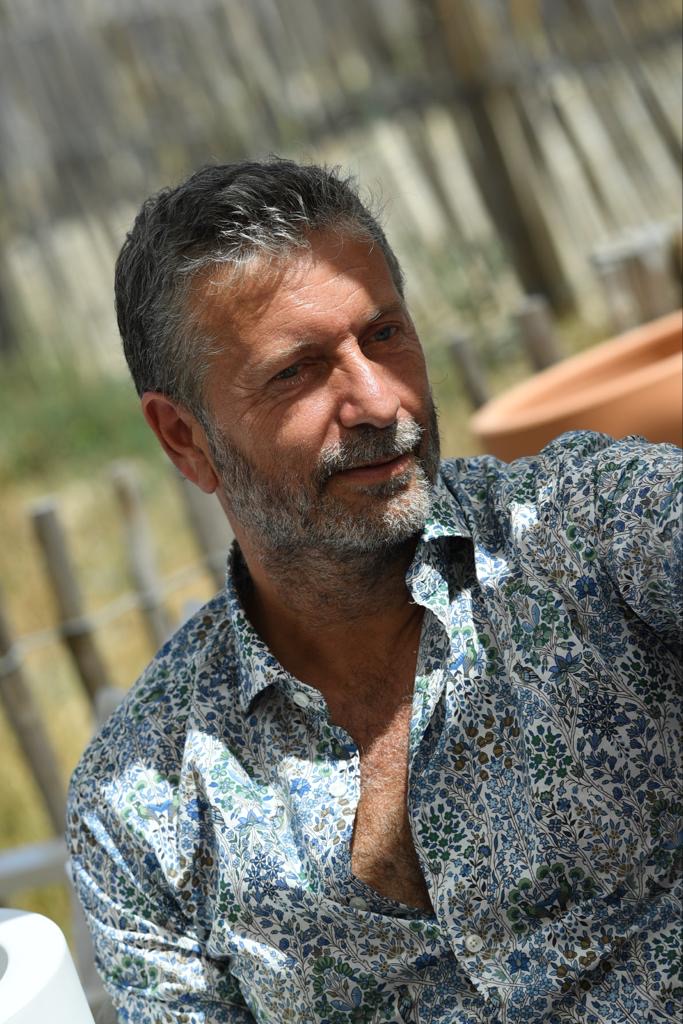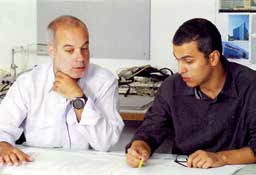A conversation with Arch. Miguel Pimentel

A conversation with Arch. Miguel Pimentel
'Usually, (we design buildings to last for more years) than we are supposed to have in life, and the awareness of this time disparity gives the architect a great responsibility for the transformation task at hand.’
Let’s start by understanding what made you choose architecture and what do you like the most about the profession?
The moment and the reasons that led me to decide to make architecture are lost in my memory, because this motivation has been present through my development, consciously, since the beginning of my adolescence. My way of being and relating to life, at that age, assumed a playful character that always integrated the idea of building, inventing, creating objects that, today, I feel that has been the logical path that led me, later, to the practice of this subject. That kind of mentality makes me think that, somehow, one is born an architect, even if, sometimes, it is only later in life that one becomes aware of it. As with any other architect, what I like most about this activity is to design, creating the idea that will materialize in the transformation of a space or a building, solving the equation that all projects carry and contain in themselves, for being in its genesis, in its natural, cultural, physical, social and economic conditions. There are countless pieces of the puzzle that the architect faces when, before a site, empty or built, he develops a coherent idea that will come to be a building and to have a definite interaction with that place. We design, except in the optionally ephemeral works, for many years, usually, more than we are supposed to have in life, and the awareness of this time disparity gives the architect a great responsibility for the transformation task at hand.
Was there anyone who influenced you?
As a teenager, I had no teachers or proximity to other architects who, due to their human dimension, had contributed to my decision to make architecture, which I like to see as a way of life, and not as a profession; it was a natural and lonely decision. However, I will not fail to mention the importance of the Masters of the Modern Movement, who influenced the entire architecture of the 20th century. I name only two who, in some way, influenced me when, in the 70s, I became aware of their works, through magazines and monographs. I am referring to Louis Kahn and Tadao Ando, the first at the end and the second at the beginning of their practice as architects, establishing as a guideline. In Portugal, I cannot fail to mention the vast work of Álvaro Siza, a remarkable, singular work that continues to surprise and impress me for its quality, renewed with each project.
How do you define the studio and architecture?
Atelier da Cidade, which I founded with other architects more than 30 years ago, has gathered a lot of experience in the elaboration and coordination of architectural projects, with the most varied programs and typologies, and which has always worked in large teams of architects, artists and technicians from other specialties, which tries to make a coherent, ethically responsible architecture, responding, in our opinion, in the best possible way to the challenges that are proposed to us. Defining architecture is an ungrateful task, due to the reductive character that any short definition contains for such a vast and comprehensive subject, being, for me, the most interesting, the art of thinking and building space. It is in the empty space, flooded with natural light, that architecture appears and it is felt. We make architecture when we add a poetic dimension, necessarily ethical and aesthetic, to any construction.
You did several projects for Angola. Are there significant differences between your projects in Portugal and, in this case, in Africa?
We have done several projects for Angola in the last 25 years of the studio. Initially a very difficult practice, due to the civil war, and since the beginning of the reconstruction process, in an organized and very professional manner. In my point of view, there are no significant differences between the projects that are developed for Portugal, Angola, or any other country, other than those arising from the conditions common to all projects. Currently, Angola does not, in my opinion, have special characteristics and conditions for the development of architectural projects, other than those intrinsic to the place where we have to intervene, and those resulting from the usual constraints, but which are constant, always present in projects anywhere in the world.
Do you agree that architecture is increasingly considered a multidisciplinary discipline? Is it rewarding to work with the various specialties?
The way I see it, it is not architecture that is an increasingly multidisciplinary subject, but the teams that develop projects that progressively incorporate technicians from more diverse specialties, giving a dimension and complexity to the project and solving their technical issues, very enriching for the practice of this art. Regarding the specialization of the architecture area, for us, it is a false question. Any architect is qualified, by the knowledge he has and the tools he gathered, to respond to any type of program that is required.
Was there any reaction to your work that surprised you, positive or negatively? And regarding the future of the studio, what challenges are on the table?
Throughout my professional life, I do not recall negative reactions to my work, but I do recall several positive ones, whether obtained from ratings of competitions of ideas or occasional comments, and or, anonymous, often the most relevant and significant. At the moment, the studio has several challenges on the table. The softer ones, which result from continuing the projects of different scales and typologies that we are developing, and the harder ones, which result from the management of the economic crisis that Portugal and Southern Europe are painfully going through, and which have evident interferences with our activity. Alongside the issues mentioned, perhaps the most important challenge is growing the internationalization of the studio, since the job market for architecture in Portugal, seems stagnant. I recognize that nowadays, the conditions given to architects to produce their work are deteriorating, but I think that these circumstantial factors will not change the quality of the practice, even at the expense of the architects’ loss.
There are many derelict buildings in downtown Lisbon. Rehabilitation is a major challenge in Baixa Pombalina. Do you agree that it is essential to rehabilitate?
I absolutely agree that it is essential and urgent to rehabilitate the entire national territory, starting with the most sensitive areas such as Baixa Pombalina, and extending to the entire city and territory. Rehabilitation is not, for us, a static, immobile attitude, wanting to restore everything to the “original design”, but a dynamic, critical, constructive attitude that adds value to the heritage to be preserved.
This interview is part of Revista Artes & Letras # 66, from July / August 2015
Partially automatic translation from portuguese: some expressions may differ from their actual meaning.
News & Interviews
A conversation with Arch. Filipa Cardoso de Menezes and Arch. Catarina Assis Pacheco
‘The perusal of the terrain is the starting point, and it is from this interaction with the place and its specificities that our work arises’ Read more
A conversation with Arch. Miguel Câncio Martins
'Inspiration is not ordered, it comes from observing the most varied and sometimes unexpected things, from listening to others, from travels, from lessons, from bad experiences and from the hard drive that is in my head, with the accumulation of information that I have been gathering' Read more
A conversation with Arch. Luís Torgal and Arch. João Almeida
'We know how to work on a commitment that encompasses various wills. And we do it with engagement and great proximity to our customers, who usually become friends'. Read more




